In June 1998, Somaly Mam stood on the stage of Spain’s Campoamor Theater shoulder to shoulder with six of the world’s most celebrated women as she received the prestigious Prince of Asturias Award for International Cooperation. Six months prior to winning the award, and sharing that podium with, among others, Emma Bonino, a former European Commissioner for humanitarian aid, and Olayinka Koso-Thomas, a Nigerian-born doctor who had campaigned for decades against the circumcision of women, Ms. Mam had been virtually unknown.
Six months earlier, in January 1998, Ms. Mam was propelled from relative obscurity into the international media spotlight largely owing to the harrowing on-camera testimony of the young Meas Ratha and other alleged victims of Cambodia’s child sex industry.
Ms. Mam’s work as president of her own Phnom Penh-based NGO, Agir Pour Les Femmes en Situation Precaire (Afesip), was being featured on French television as part of the popular weekly show “Envoyé Spécial.”
The documentary opens with the camera focused on Ms. Ratha, who was then a chubby teenager of about 14-years-old from Takeo province. Ms. Mam is seated at the young girl’s side as she tells a dismal tale of sexual slavery in an unnamed brothel somewhere in Phnom Penh.
“My name is Meas Ratha and I am 14 years old. I was born in the province of Takeo and I have seven brothers and sisters. My family is very poor. My father has disappeared. One year ago my mother fell seriously ill. I was completely distraught. I was very young and I didn’t know what to do,” the young Ms. Ratha says to the camera. She then cries and receives a comforting squeeze of support from Ms. Mam.
“They locked me up in a room and at that time I knew I had been deceived,” she continues.
The documentary goes on to explain how the young girl had been promised a job as a waitress in Phnom Penh, but wound up a captive in a brothel. Later, she is filmed playing musical chairs, skipping rope, singing alongside other girls being cared for inside the Afesip center and helping Ms. Mam treat an AIDS patient called Tom Dy.
Sixteen years since the documentary was televised, Ms. Ratha—now 32 years old and married—said her testimony for the France 2 channel was fabricated and scripted for her by Ms. Mam as a means of drumming up support for the organization.
“The video that you see, everything that I put in is not my story,” Ms. Ratha said in an interview last month. Ms. Ratha, who was simultaneously anxious and determined to let people know the truth, said that she did not want to cause trouble for Ms. Mam’s NGO, which had provided an education for her, but that she could no longer continue a lie that had followed her for half her life.
“Somaly said that…if I want to help another woman I have to do [the interview] very well,” Ms. Ratha said.
“You know, my reputation has been lost because of this video,” said Ms. Ratha, who speaks competent English, adding that she had struggled to live with being typecast as a former sex slave since agreeing to tell the fabricated story.
“Everybody saw me and say ‘I a prostitute. Her mother sold her.’ They say like this. Everybody looks down on me.”
Now, Ms. Ratha lives a simple life with her two-year-old daughter and husband, who is a pharmacist and sells medicine out of their home.
Asked if she wanted the public in France to know the truth about her life, Ms. Ratha was unhesitating.
“I want them to know too. But if they know, Afesip will be in trouble. I don’t want Afesip to be in trouble, so that it can help other girls,” she added.
Today, Ms. Mam is at the center of the global campaign against the trafficking of children and women into the sex trade. As president of her hugely successful foundation in New York, she rubs shoulders with Facebook’s Sheryl Sandberg and actress Susan Sarandon, both of whom are members of the Somaly Mam Foundation’s board. In 2009, Ms. Mam was named one of Time Magazine’s 100 most influential people. Her foundation raises millions each year, and Ms. Mam is a jet-setting ambassador for her cause.
She owes much of her fame to the harrowing and brutal stories of girls just like Ms. Ratha, who have relayed to audiences across the world painful stories of sexual slavery in order to raise money and awareness of the Somaly Mam Foundation.
But the fabrication of Ms. Ratha’s sex slave story is only the latest incident of false information to emerge from Ms. Mam and her organizations.
Last year, Ms. Mam finally admitted, following public scrutiny, that she had made false claims in a speech to the U.N. General Assembly in New York, in which she said that eight girls she rescued from the sex industry had been killed by the Cambodian army after they raided her organization’s shelter. Police officials and Ms. Mam’s ex-husband also last year strongly denied long-standing and highly publicized claims by Ms. Mam that her daughter was kidnapped by human traffickers in 2006 when she was 14 years old. The traffickers, she claimed, had videotaped her daughter being gang-raped in retaliation for her work with victims of the sex trade. Police said they were baffled by the claims, while Ms. Mam’s former partner said the story was a publicity stunt to raise funds for her organization.
A separate Cambodia Daily investigation conducted last year also uncovered that one of the Somaly Mam Foundation’s most highly-publicized sex trafficking victims, Long Pros, had fabricated her harrowing story of gruesome mutilation at the hands of a brothel owner. In numerous interviews and in a prime-time television documentary, Ms. Pros said she was imprisoned as a young teenager at a brothel in Phnom Penh where she was held as a sex slave and had her eye gouged out with a knife for refusing to have sex with customers. However, medical records and interviews with Ms. Pros’ parents and her eye surgeon showed she had her eye removed in hospital because of a tumor that developed in her childhood. Ms. Pros’ parents said she was sent directly from their home to Ms. Mam’s organization in Phnom Penh simply to get an education and she had never spent any time in a brothel.
The Somaly Mam Foundation’s press office in New York declined a request to interview Ms. Mam for this latest article. Ms. Mam also declined to be interviewed in relation to false comments to the U.N. General Assembly, the alleged fabrication of the kidnap of her daughter, and the alleged fabrication regarding Ms. Pros’ eye.
“We don’t know why, nor will we speculate on why Meas Ratha has allegedly made the claims that you report,” Afesip’s communication team said in an email.
“What are clearly facts is that in the 15 years since the filming of that documentary, the Somaly Mam Foundation (SMF) and AFESIP have led successful programs to help thousands of young women and girls escape from sex slavery and rebuild a life of dignity,” the organization said.
“Those women who choose to publicly share their personal stories about sex trafficking are courageous and strong, and we are saddened when forces work to silence their voices and seek to distract from building awareness of this critical global problem,” it continued.
Afesip declined to provide any information regarding the brothel from which Ms. Ratha was allegedly rescued, or where her case was filed with police. Afesip also did not provide such information related to the alleged mutilation of Ms. Pros or the alleged kidnap or Ms. Mam’s daughter.
The Somaly Mam Foundation also helps with the Voices for Change program, which is run by Sydney-based non-profit Project Futures—a charity that raises awareness about human trafficking and sexual exploitation in Australia and Southeast Asia.
The organization launched an investigation into Voices for Change after The Cambodia Daily’s investigation of Ms. Pros, who is a member of the program. When asked about the status of the review, the press office said that it was still in progress.
At Ms. Ratha’s family home in Takeo province, her father, Kong Tith, a bony man in his sixties who has kept his family afloat by doing everything from logging to building houses, said a relative had proposed that he send two of his daughters to Afesip back in 1997 because he was poor and unable to properly care for all of his seven children.
“[Ratha] went to the NGO run by Somaly. My cousin saw that I was poor, so he took two of my children to Somaly’s organization. They were not mistreated” by the NGO, he said. But, Mr. Tith said, when he learned of his daughter’s participation in the documentary, he traveled to Phnom Penh to confront Ms. Mam.
“I was the one who followed the case by going to the NGO and asking them about it,” he said in an interview last month.
“This was just an opportunist taking advantage of my child,” Mr. Tith said of the false claims his daughter made in the documentary, adding that he did not take his complaint further than Afesip because the organization had helped to educate his two daughters and provided them with shelter.
Ms. Ratha still remembers the fuss her father kicked-up because of the false story she told in the documentary.
“My father brought my relatives and police to the NGO and they really freaked Afesip out,” Ms. Ratha said. “In the end they talked and understood the issue, so the problem was solved.”
“I told him, ‘father don’t you worry [about the documentary], it is the NGO’s rule.’”
Flicking through photo albums of her son’s recent wedding, Ms. Ratha’s mother, Meas Sokhom, said she was shocked to learn of her daughter’s appearance on television back in 1998. Ms. Sokhom described her daughter’s childhood as difficult due to the family’s poverty. But not one exposed to the horrors of the sex industry or slavery in a brothel.
Ratha, she said, was a happy child, and out of all her sons and daughters, she showed the most natural intelligence. It was that natural smartness that they had hoped Afesip would cultivate, which was the reason they let her go to the organization in the first place, she said.
“We cannot say such a thing [sex slavery] happened to my daughter. We are her parents and we lived here the whole time,” she said. “If these things did not happen, why did they document her life like this?” she asked.
“I asked her about it [the documentary], but she did not say anything. She just stayed quiet.”
A 30-minute drive from Ms. Ratha’s childhood village, her sister, Meas Sokha, lives in a modern two-story home with a pond in the back yard for breeding fish. Ms. Sokha has two children and spends her days as a housewife. The village where she lives is a postcard perfect portrait of rural Cambodia surrounded by fluorescent green rice fields and tree-covered hills on the horizon. But she remembers harder times, when her family would sometimes have to go without food in the evening.
Ms. Sokha was the other child in the family to go to Afesip with Ms. Ratha in 1997. The two sisters slept, ate and worked together for approximately six months at Afesip in the hope of gaining an education and finding a job. At no point during their journey from their rural home in Takeo to the NGO’s center in Phnom Penh was her sister sold to a brothel, she said.
“We were desperately poor but I was not abused. She [Ratha] wasn’t either. We are from here and were sent there [to Afesip] because we were poor and did not study much,” Ms. Sokha said. “[Ratha] is now educated, so she can work at anything.”
Ms. Sokha said that she remembered how staff at Afesip had taken an interest in her sister, as she was a confident speaker.
“They only filmed her because she was smarter than me. She was better at talking than me. I was no good at that,” she said. “The point is we are good girls, but they say that we are not good and that we were sold” to brothels, she said.
“She was not raped or sold. She was not abused but we were very poor.”
Doubt over Ms. Ratha’s story emerged shortly after the France 2 show was broadcast. French national and long-time resident of Cambodia Marie Christine Uguen cared for Ratha when she was a teenager in the late 1990s. Ms. Uguen said she had been deeply shocked at seeing Ms. Ratha appear on television telling a version of her life she had never heard before, despite living with her for months. She saw the documentary on France 2 while she was visiting Battambang province on a work trip.
“I turn on the television to see an ‘Envoyé Spécial’ on Afesip. And there I see Ratha on television speaking, squirming and crying and Somaly who takes her hand,” Ms. Uguen said.
“I did not understand at all where this story had come from. I sat Ratha down in front of me and asked her what is this story about? What have I just seen on the television?
“…Then Ratha tells me, ‘Aunty, basically, I know you are not going to agree, but Somaly asked me to go to a home in Tuol Kok with several other girls and I was the one who acted the best, so she asked me and it was me who she chose,’” Ms. Uguen said.
“I said to her ‘What’s that, you did a rehearsal?’ And she told me ‘Yes we did a rehearsal in a home in Tuol Kok and at the end it was me who was selected…’”
Pierre Legros, Ms. Mam’s former husband and one of Afesip’s original founders, denied knowing anything about Ms. Ratha’s coached story for the French TV crew. He said that his job at Afesip in 1997 was not to manage the victims but to help raise funds for the organization and set up offices in other countries in the region.
Mr. Legros said that Afesip at the time cared for both victims of sex trafficking and other girls who were taken in because they were considered to be at high risk of falling into prostitution.
“Could Somaly have taken her in as a preventive case and afterwards say she has been trafficked? Yes, that is possible,” Mr. Legros said.
“Ask Somaly. She had direct contact with Khmer people (victims and family.) I was only managing the structure,” he said in a subsequent email.
Back at her home on the outskirts of Phnom Penh earlier this month, Ms. Ratha prepared to finally watch the documentary she had appeared in 16 years ago but had never actually seen. Watching a DVD recording of the documentary on a laptop computer at her home, Ms. Ratha was visibly moved at seeing the young girls from Afesip and her past.
On the screen appeared Srey Veng, “13 years old, raped, beaten and sold to different clients for two years,” the voice-over in French says. Next on screen was 12-year-old Sokha, “the youngest, sold and raped at the beginning by her step father,” the commentary continues.
Ms. Ratha looked perplexed. Sokha, known then as A’tour, was not supposed to have been in the documentary, an amazed Ms. Ratha said.
According to Ms. Ratha, Ms. Mam had told her that the story she was to recount for the filmmakers was true, but was the life-story of another young girl, Sokha, who had been too traumatized to speak about her past.
Ms. Ratha said that she agreed with Ms. Mam to tell Sokha’s story because then it was not really like lying. That Sokha was also featured in the same documentary telling a totally different story of rape and brothels was a huge shock to Ms. Ratha.
“I don’t understand why she is in the video,” Ms. Ratha said. “Somaly lied to me…. She said this story is [Sokha’s] story,” Ms. Ratha said.
“At that time, I was not happy since what I was saying was not my true story. But I cried because I felt sorry for [Sokha],” she said. “I don’t understand.”
Source

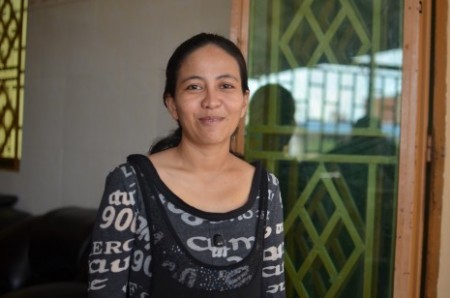

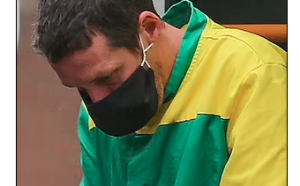
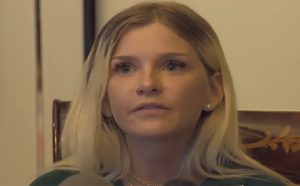
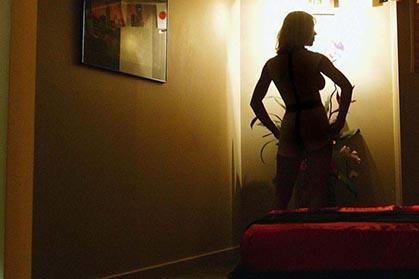
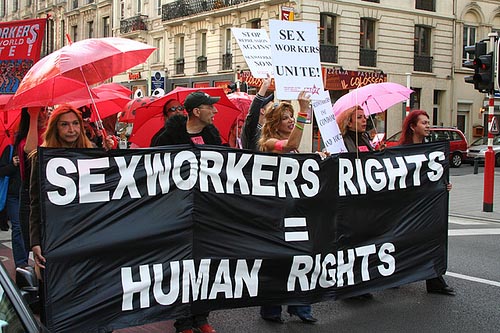
[…] I get to visit a lot of strange places as part of my work exploring the net. None stranger than The Real Porn Wiki Leaks where I found Sex Slave Story Revealed to be Fabricated. […]